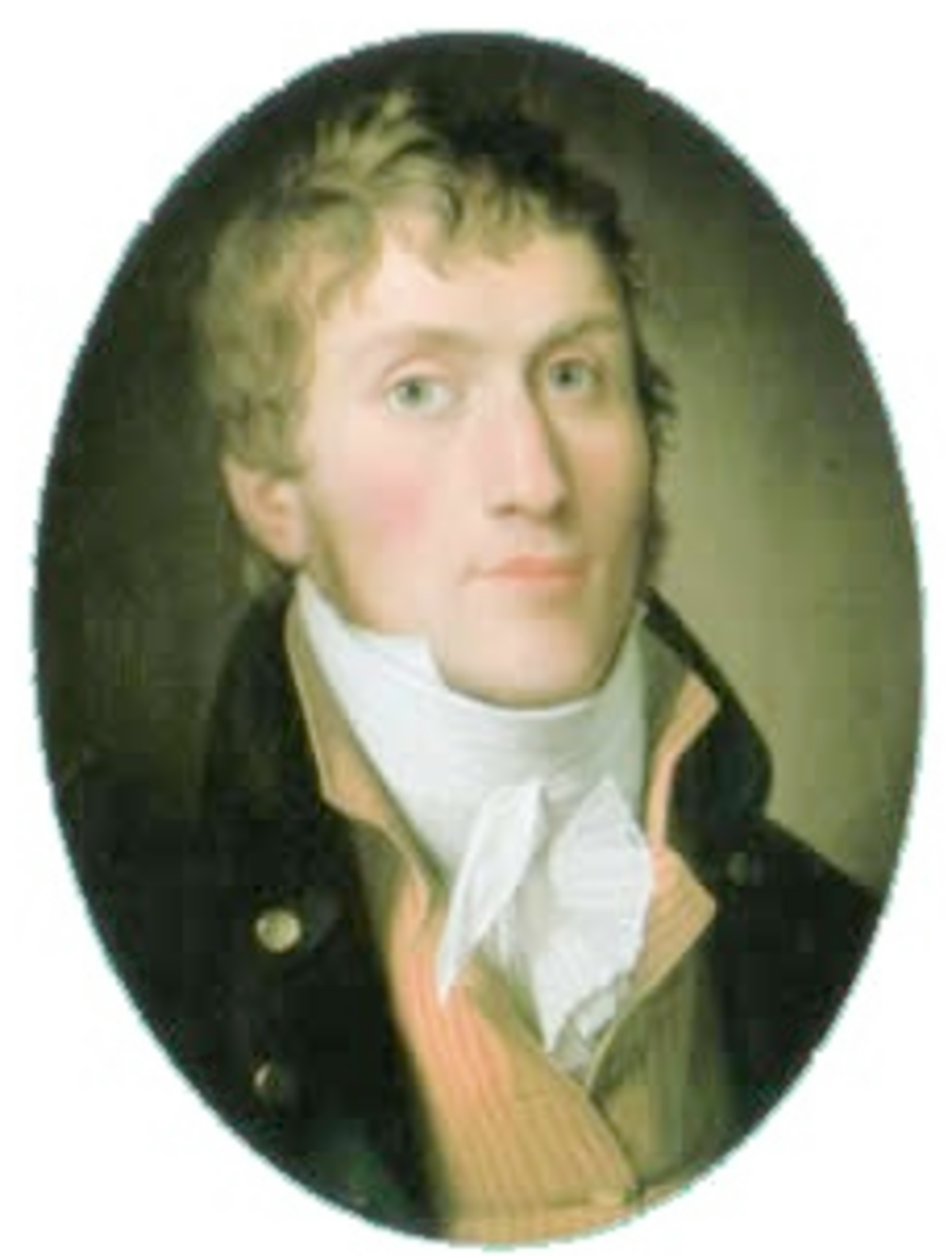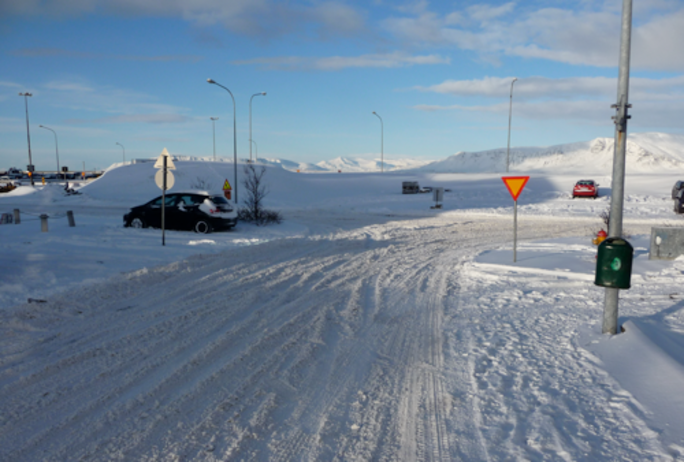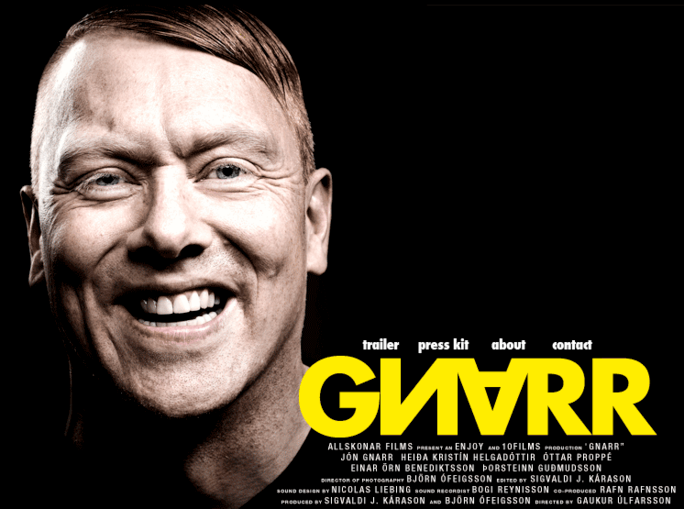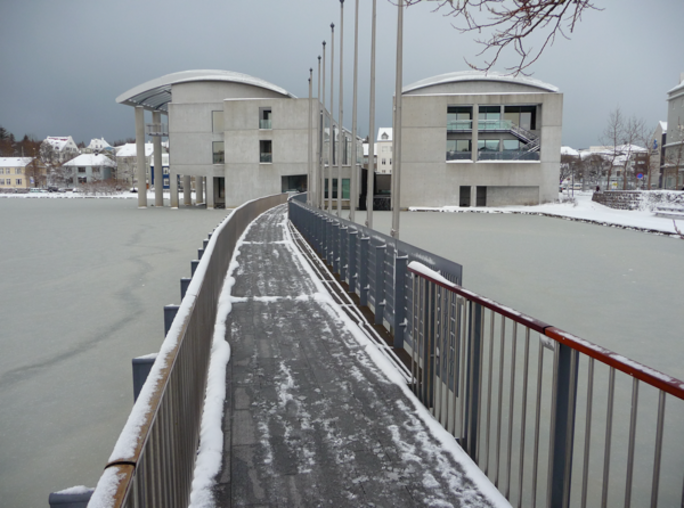Two years ago, as the international banking crisis swept the world, Iceland's economy collapsed through the floor. Thousands of Icelanders regularly took to the streets during the winter of 2008 to drive out their government which was disgraced by revelations of corruption. Amid an atmosphere of revolution, and excited talk of remodelling the country's society, these unprecedented mobilisations held high hopes of creating a new democratic platform. So just what has changed since? Ludovic Lamant reports from the capital Reykjavík.
-------------------------
Jorgen Jorgensen, a Danish adventurer who died in the wilds of Tasmania in 1841, is, as a result of his various misadventures, a laughing stock in his native land. However, one of this prolific writer's exploits did have irrefutable panache. In 1809 he landed in Iceland, then under the authority of Denmark, bent on trading. By early summer he had managed to jail the local governor for frustrating his mercantile ambitions, and proclaim the independenceof the island.
Following the lead of French and American revolutionaries, Jorgensen decreed that "all men are born free and equal", and promised the creation of a parliament, with elections that same summer. Alas, two months later he was arrested by the English, who had come to lend their Danish allies a hand. Jorgensen's attempt at revolution had ended in fiasco, and today Icelanders recall with fond amusement this ambitious and ephemeral monarch, the‘Dog-Day King'.

"At the time Icelanders didn't understand what was happening. They weren't ready to hear this call for equality, and the man who was to obtain our real independence, in 1944, was born years after this episode", regretted Andri Snær Magnason, a young writer with a mop of blond hair, author of damning books on the consumerist Iceland of the 2000's. "I feel as if the same thing happened to us 200 years after," he continued. "For a few months, we citizens held power over the banks, business and the government. In theory, anything was possible. But our libertarian way of thinking, took over again. We were afraid of becoming a Castro-island like Cuba, and things gradually went back to the way they were." With an embarrassed smile, he concluded: "We didn't dare change our alphabet."
Two years after the collapse of its banking sector there is a whiff of missed revolution in the air of Iceland, as if the window of opportunity to change everything had been walled up without warning. "Things happen in waves. In 2008, society woke up in a state of desperation mixed with euphoria", said Minister of the Interior, Ögmundur Jonasson, Green MP andone ofthe pillars of the current social-democratic government elected in April 2009. "New faces appeared in meetings, on the front pages of newspapers, on television. For over a year, people were alive. And I'm a bit worried about how things are beginning to die down at the moment."
From October 2008 to January 2009, thousands of Icelanders took over the streets of Reykjavik to voice their anger. The ‘Saucepan Revolution', thus named as a distant echo of the Argentinian cacerolazos, toppled the then-head of the government, the conservative Geir Haard.
"At the time, we were demandinga government of national unity, or a government composed of citizens chosen at random from the phone directory. But we weren't heeded. Traditional elections were organised and the established parties won," bemoaned SigurlaungRanarsdottir, one of the leaders of the Saturday rallies opposite parliament,which were a regular feature of life in the capital at the end of 2008.

What has been the outcome? A centre-left government was elected in April 2009, principally made up of old political journeymen. And two political forces have since emerged. The first, directly from the citizen movements of 2008, is called The Movement, an ‘anti-party', which has three representatives electedto the 63-strong national parliament, the Althinghi (Alþingi, literally"all-thing").Today it is one of the mouthpieces of Iceland's radical left, associated with afringe of Green MPs who are critical of the government's action, but remain divided on the question of joining the European Union. "Either there's a real revolution this year, or we're going to leave the country in big numbers," warned Sigurlaug Ragnarsdottir, a member of The Movement.
'IMF taking decisions in our name'

Enlargement : Illustration 3

More complicated to grasp, difficult to place on the traditional political chessboard, ‘The Best Party' was the revelation of local elections of May 2010. Its president, actor and comic Jon Gnarr (left) took control of Reykjavik Town Hall, using his name to capitalise on the protest vote in the heat of the crisis. Since then, the Jon Gnarr effect has petered out (see video). Put to the test of power, his ‘anarcho-surrealism' was translated into a pragmatism that failed to convince. "They arrived a year ago with no experience and today they are working exactly like all the others," deplored Sigridur Gudmunsdottir, who voted for the Best Party last year and who may well vote for them again, for lack of anything better. "They've cut the crèche budgets without batting an eyelid, for example."
"It's not a question of individuals", said Jon Thorisson, an architect made redundant by the crisis, who became the main adviser on the island to Eva Joly1, a former investigator and advisor to the government for its enquiries into the role of white-collar crime in the 2008 economic collapse. "The people in the Best Party are neither better nor worse than their predecessors. But we need more fundamental changes. It isn't a question of knowing who the mayor of Reykjavik is, but of understanding how the system works. And for the time being it's the IMF that's making decisions in our name."
Whereas Icelandic banks have revived in 2011,with profits and bonuses, the chilling assessment of a system barely weakened by the virtual bankruptcy of 2008 is shared by a considerable number of observers, including writer Andri Snær Magnason: "The crisis didn't happen suddenly, by chance, by pure coincidence, because thirty guys turned into monsters, but because our system made them monstrous," he commented. "The financial sector made people kings, and corrupted them. As long as we don't change this, nothing will change in Iceland."

Enlargement : Illustration 4

Iceland is going through a moment of truth for the future of its revolts. The citizen movements of the past few months today find themselves confronted by conservative forces that have regained their confidence. "We're fighting monsters who have been prospering for over a hundred years," said The Movement's Sigurlaug Ragnarsdottir. "The Independence Party and some of the banks on the island have evolved together since the early years of the twentieth century, and it's not easy to get rid of them."
The Citizens' Assembly, elected to rethink the constitution, is in danger of paralysis, of extinction even, because of the manoeuvring of the old Independence Party. As for the movement against Magma, the Canadian company that wanted to take advantage of the Icelandic crisis to buy the biggest private geothermic energy supplier on the island, the social-democratic government remains loath to oppose it despite a petition of over 35,000 signatures calling for the company's departure and the stubborn high-profile resistance of the singer Björk. The process is ongoing.
The next test is planned for April 9th, when Icelanders are called to the ballot box to say whether they agree to pay back Britain and the Netherlands the estimated 4 billion euros lost by British and Dutch households as a result of the 2008 bankruptcy of the online Icelandic bank Icesave.
In a first referendum in March 2010, 93% of Icelanders voted against this. But the conditions of reimbursement have been renegotiated, and flimsy surveys carried out by the island's two main conservative newspapers say that this time a "yes" vote could prevail. The result of this vote is sure to weigh heavily on the future of the citizen movements.
-------------------------
1: Norwegian-born Eva Joly, 67, was appointed by the Icelandic government as special advisor into anti-corruption investigations in 2009. She had previously pursued a long and latterly high-profile career as an examining magistrate in France, her adopted country, where she notably led the investigation into the Elf corruption scandal, involving high-ranking politicians and businessmen. She took leave of her post as a magistrate in 2002 to become a special adviser on corruption and international financial crime to the Norwegian government. In 2008 she returned to France where she was elected as a Member of the European Parliament for the Europe Ecologie party. In 2010, she stood down from her role as advisor for the investigations into the Icelandic bank crash, officially to concentrate on her campaign to run as Europe Ecologie candidate for the French presidential elections in 2012.
English version: Chloé Baker
(Editing by Graham Tearse)


